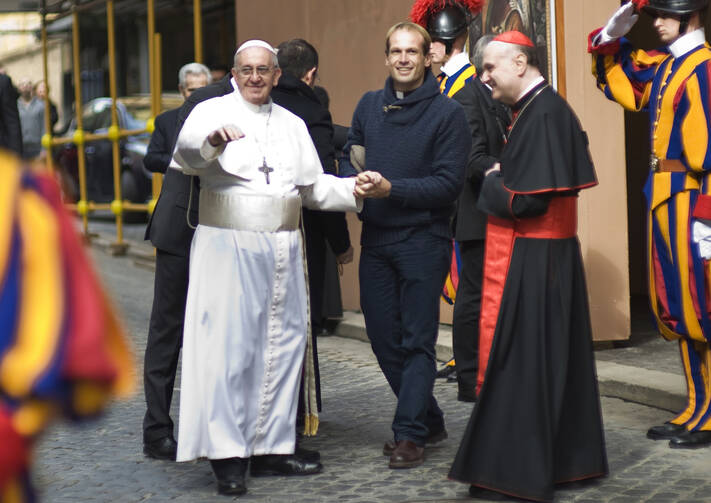On a recent episode of “Inside the Vatican,” in the midst of Cardinal Robert Sarah’s book controversy, Gerry and I discussed how Archbishop Georg Ganswein’s role as Pope Emeritus Benedict XVI’s personal secretary—and often, by default, his gatekeeper and spokesman—has been called into question. Since the start of his papacy, Pope Francis has expressed a desire to keep his personal secretaries out of the spotlight. This week on “Inside the Vatican,” we look at how Francis has changed the role and discuss Father Gonzalo Aemilius, the pope’s new personal secretary, who is known for his work with street children and drug addicts in his native Uruguay.
Listen on Spotify and Apple Podcasts.
This week, we also give updates on the pope’s recent meetings with U.S. Vice President Mike Pence and Iraqi President Barham Salih. Since the Holy See has good relations with the U.S., Iran, and Iraq, could it be stepping in as a mediator?
We also explain the election of Cardinal Giovanni Battista Re as dean of the College of Cardinals and Cardinal Leonardo Sandri as vice dean. The election followed the traditional line, electing the former vice-dean as dean and the former chief of staff as vice-dean. We discuss what it means for both roles to go to Vatican insiders, for better and for worse.
Links from the show:
- Pope Francis names new secretary: a priest who worked with street children and drug addicts
- Mike Pence and Pope Francis meet in a surprisingly long first visit
- Pope Francis meets with Iraqi president amid growing tensions after Soleimani assassination
- Cardinal Giovanni Battista Re is the new Dean of the College of Cardinals
- “Inside the Vatican” explains the role of dean of the College of Cardinals










